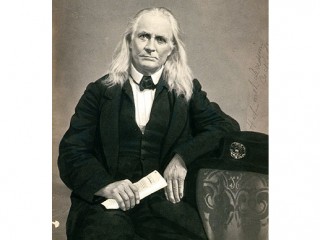
Edmund Ruffin biography
Date of birth : 1794-01-05
Date of death : 1865-06-17
Birthplace : Prince George County, Virginia, U.S.
Nationality : American
Category : Famous Figures
Last modified : 2011-03-02
Credited as : Editor and publisher, scientific agriculturist,
Edmund Ruffin, American editor and publisher, was a prominent scientific agriculturist as well as his period's most renowned advocate of establishing an independent Southern nation.
Edmund Ruffin was born in Prince George County, Va. Educated at home until he was 16, he attended the College of William and Mary for a year before he was dismissed. He saw brief military service in the War of 1812 and then began a life as a Southern planter. Agriculture in Virginia was in a depressed state, largely because of the dominant farming practices of the time. Ruffin developed methods of restoring the fertility of soils and described them in "An Essay on Calcareous Manures." This discovery and others, which Ruffin announced in his publication, the Farmer's Register, were adopted by large numbers of Virginia planters and led to an agricultural revival. Thereafter he contributed systematically to agricultural science— popularizing, distributing, writing, speaking, and informing Southern farmers of theoretical as well as practical, progressive agricultural methods.
In 1841 Ruffin was appointed a member of the Board of Agriculture of Virginia and became its secretary, and a year later he became agriculture surveyor of South Carolina. His detailed and clearly written Report of the Commencement and Progress of the Agricultural Survey of South Carolina became a landmark in the agricultural history of the state. On his estate, Malbourne, in Hanover County, Va., he applied his scientific farming ideas so successfully that the plantation became a showplace where record harvests were almost commonplace.
Ruffin is most widely known as a radical spokesman for Southern nationalism. Early in his career he became convinced that blacks were inferior and that a slave system was necessary and generally superior. He was the first outspoken advocate of Southern secession, viewing the competition of the North and South for advantage in the Union as one which would inevitably end in Southern defeat. The South as an independent nation would enjoy great advantages: direct trade with Europe, the end of the hidden subsidy by the South of Northern industries in the form of tariffs on imports, and a general strengthening of the slave society.
Ruffin announced his views in assorted publications which he sometimes printed and distributed at his own expense. He advocated secession at the Democratic convention in Charleston in 1860; welcomed the election of Abraham Lincoln as a portent of the impending separation of the South from the Union; fired the first shot on Ft. Sumter to initiate the war; and fought in the Battle of Bull Run. He committed suicide when Confederate defeat became a fact.
















